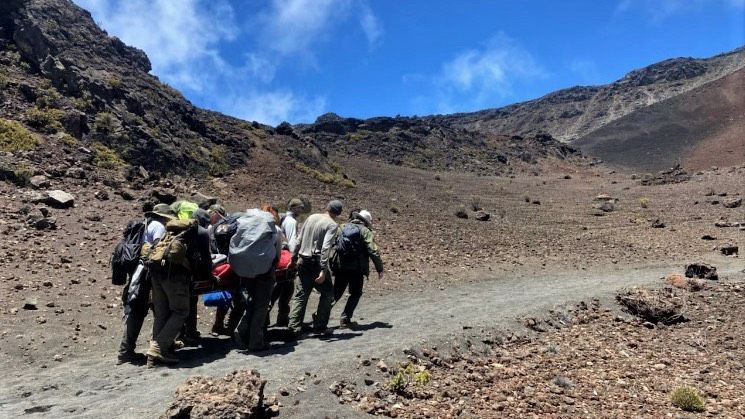WASHINGTON — A new bill co-introduced last week by U.S. Rep. Ed Case, D-Hawaii, and two House colleagues would establish a grant program to help states with the cost of search-and-rescue operations on certain federal lands.
According to the lawmakers, the Public Land Search and Rescue Act is intended to help states with remote search-and-rescue on lands administered by the U.S. Department of the Interior and Department of Agriculture.
Under the measure, eligible search-and-rescue activities would include any activity that utilizes, trains, or supports responders with specialized equipment to locate, assist, and remove to safety individuals who are lost, injured, stranded, or entrapped in remote areas, as well as recover deceased individuals.
As the lawmakers note, rural counties with low populations and high visitation numbers are burdened with frequent remote search-and-rescue operations despite low tax bases to cover the costs.
“Even seasoned hikers can lose their way and end up lost or hurt in our national parks and other public lands,” Case said “In my state of Hawaii, there has been a critical need for resources to conduct search and rescue operations at Hawaii Volcanoes and Haleakala National Parks, which draw millions of visitors each year.
“Since 2011, our mostly county emergency personnel have responded to close to 200 emergencies at Hawaii Volcanoes National Park on the Island of Hawaii,” he continued. “At Haleakala National Park on the island of Maui, they have had to handle 205 search and rescue cases. These are national parks and this responsibility should not be shouldered and paid for exclusively by state and local governments. Our legislation will fairly help reimburse agencies in Hawaii and across the nation for the costs they bear to prepare for and to conduct search and rescue on our federal lands.”
Case co-sponsored the bipartisan measure with Reps. Celeste Maloy and John Curtis, both R-Utah.
“Utah is renowned for its recreation and exploration opportunities across its millions of acres of wilderness,” Maloy said. “But sometimes people get injured, lost, or stranded in these remote, federal lands, and it’s our local communities who are footing the bill and putting their lives on the line to conduct search and rescue operations. This legislation will help law enforcement bear the costs of critical equipment and resources needed to save lives.”
The grants are awarded on a 75/25 cost-share basis, meaning the grantee would only need to cover a quarter of the cost of eligible search-and-rescue operations.
Michael Tsai covers local and state politics for Spectrum News Hawaii. He can be reached at michael.tsai@charter.com.



